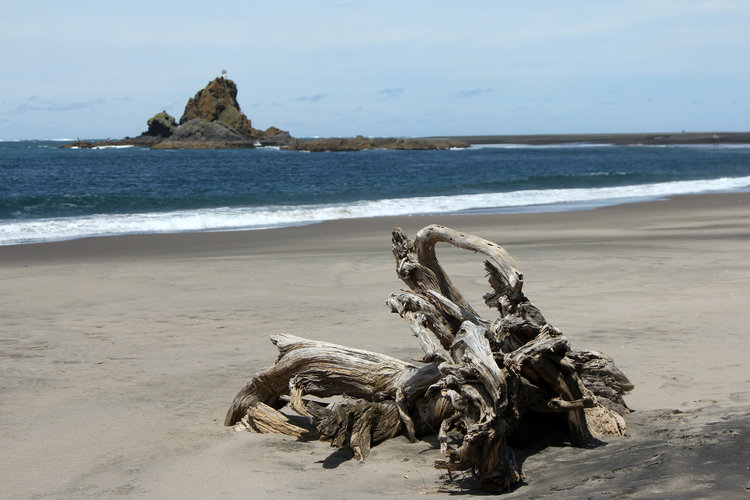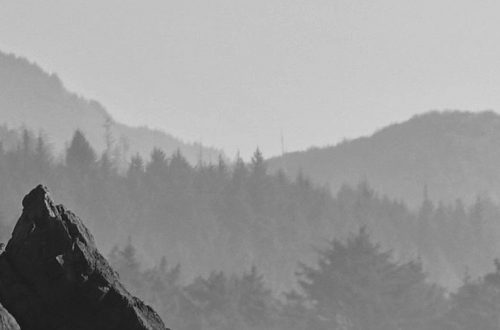by Colleen Coleman
Rock-hunting on the shores of Lake Michigan occupies a fair amount of my time each summer. With pails, buckets, strainers, and sifters, I set forth on the search. And I set out again and again, day after day, summer after summer, never tiring of this search.
I started thinking about my fondness for rock-hunting while re-reading Josef Pieper’s Leisure the Basis of Culture and In Tune with the World. How, and why, was I still so fond of such a futile activity? Hours and hours of time in exchange for rocks, the majority of which are still sitting in the buckets I used to collect them.
Pieper notes that the world of leisure (also the world of festivity) is outside the realm of utility and calculation; he says that it transcends the workaday world. What does this mean, exactly? It means that during experiences of true leisure, we stop thinking along the lines of “I have to do this because…” or “I need to do this so that…” and just settle into being. It means that we lose track of time. It means that we are spending our time in a way that is not useful or convenient. We are not ‘at leisure’ for the sake of anything else.
Leisure is just good in and of itself; in this sense, it is futile. In addition, Pieper says it is time that we cannot earn through hard work or deserve through superb diligence. It is always a gift that we receive (Leisure the Basis of Culture, 62).
My earliest experiences as a rock-hunter had some of the characteristics of true leisure. I started rock-hunting because I heard a story about a special kind of rock that could be found on the northern shores of Lake Michigan and I had seen these rocks in the many gift shops that lined the streets of the small lakeside towns. The rocks were called Petoskey stones, and legend had it that the stone was named after the Indian Chief Petosagay; the sun had shined on his face when he was born and his face beamed with a radiance. The chalky white sunburst pattern that covers the grey surface of the Petoskey stone is easy to see when wet; but, when the stone is dry, it looks like an ordinary, gray rock. Intrigued by the story, I wanted to find one of my own.
One way to find these rocks is to ask the locals who regularly hunt for the stones what beaches they have recently scoured with success. But even with that information, there is no guarantee that you will find a stone on a particular day. If it’s overcast, the rocks’ pattern becomes hard to see even in the water. Sometimes the waves caused by a windy thunderstorm will toss buckets of the stones up onto the shore. Sometimes the waves will gather the stones back into deeper water. The texture, color, and shape of the rocky beach surface can vary slightly by the day, and dramatically by the year. So, finding a Petoskey stone is largely a matter of luck. It is something you almost have to receive. And if you asked me why, when I initially started to rock-hunt, I rock-hunted I wouldn’t have been able to tell you. I didn’t do anything with them once I had placed them in a jar, except look at them. I didn’t make jewelry out of them. I didn’t even polish them. My rock-hunting was pointless.
Nowadays, my rock hunting is even more futile than that. I no longer rock-hunt for rocks. And, I think that Pieper would say that this is for the better because I am more ‘at leisure.’ Ultimately to be at leisure, he says, means to contemplate, and to contemplate means “to open one’s eyes receptively to whatever offers itself to one’s vision, and the things seen enter into us… without calling for any effort or strain on our part to possess them” (Leisure 27). I wanted to limit my vision to a particular kind of stone and did undertake efforts so that I could collect, in other words possess, them. For Pieper, such love is too limited for true leisure.
True leisure requires receptivity and receptivity, great generosity.
He explains that once we have received the things that have offered themselves to our sight, we respond with joy, with an affirmation of reality, saying, “everything that is is good, and it is good to exist…For man cannot have the experience of receiving what is loved, unless the world and existence as a whole represent something good and therefore beloved to him” (In Tune with the World 26).
I started out with the desire to scour all the beaches I could make it to in order to find Petoskey stones and would alas, feel a tinge of disappointment when the day had not rewarded my efforts. Now, my summer rock-hunting looks more like taking a leisurely stroll along the beach. Sure, I still look down on the shore. Sure, I still enjoy finding them. But, I appreciate more all the other things that come into my view along the way: other kinds of rocks that I have come to learn about—Leelanau blue (a beautiful cobalt or aquamarine blue stone), quartz, chert, smooth pieces of beach glass… there are things even beyond the rocks I set out to find and enjoy finding—the marvelous palette of color along the shore, the soft lapping of the waves and their seemingly endless stretch into the distance, the wild, messy foliage stretching up sandy hills into a forest behind, the soft and knotty pieces of driftwood that toss up with the waves, the conversation of friends and family pacing along with me, or the breathtaking quiet of it all… I went from asking, ‘What can I find?’ and ‘How can I get what I’m looking for?’ to ‘What is here for me to see? and ‘I know there will be something good waiting there…I wonder what it will be.’
The act of not-looking-for-anything-in-particular allows for a more expansive love.
If we are going to truly be at leisure, we cannot set out to look for anything in particular and we cannot set out with a desire to acquire, accumulate, or possess. But, we can and should still set out, resting in the knowledge that what awaits, although we are not sure what it is, is surely going to be good.

Colleen Coleman is from Michigan but is still learning how to survive the winters in Minnesota. Admiring birch trees and ferns, talking with friends over tea, writing letters, making music, rock-hunting on Lake Michigan, book browsing (and reading), and cooking are a few of her favorite things. What is she hoping to learn in the near future? How to make kombucha and how to acquire a green thumb. She lives in St. Paul and teaches at a private school.
Republished with permission from Commonplace Living.






2 Comments
Monica Dennis
Thank you for this wonderful piece. What a great reminder to stop and look and simply enjoy.
Candace Rodgers
Thank You 😊
I’ve been Rock Hunting for a few years, you are So Right…..
I need to do it in a More Leisurely way‼️
Love Learning things I should know Already.
Candace